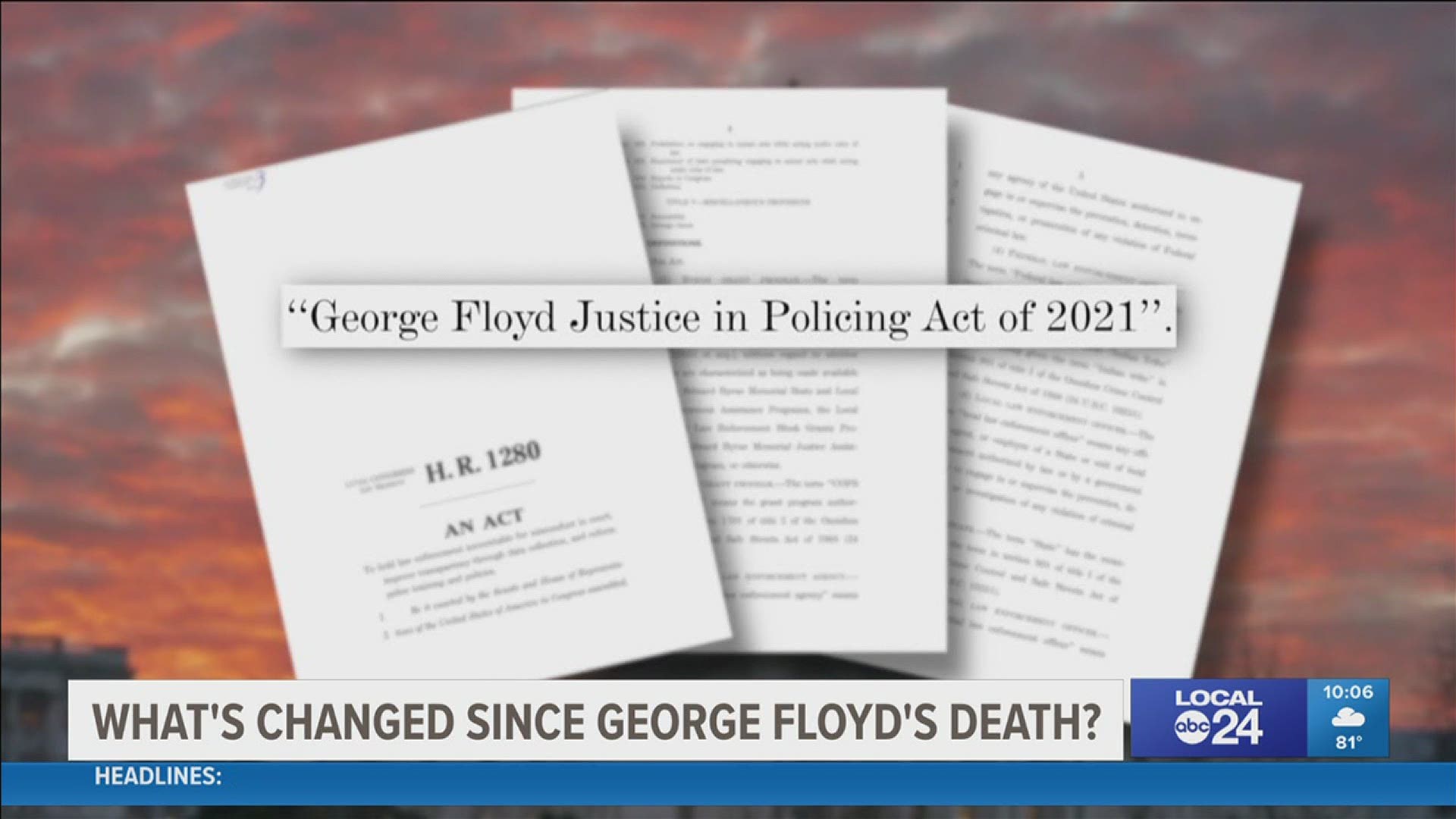MEMPHIS, Tennessee — Local leaders are reflecting over a year that brought many Mid-Southerners to the streets and the ballot boxes to make their voices heard around police reform after George Floyd's death.
Tennessee State Senator, Raumesh Akbari says there's still a long way to go.
"Certainly when you look at it being the one year anniversary of the murder of George Floyd it really does have us question, where are we now. What has changed?"
Around the world people watched the death of Floyd at the knee of now convicted former Minneapolis police officer Dereck Chauvin, which resulted in changes in policing for several law enforcement agencies across the U.S.
"I know on a federal level there has been legislation to promote meaningful police reform but they have not been able to move the needle forward. The conversation continues but there has not been actual legislation that will make an impact in folks lives," said Akbari.
That legislation named in Floyd's honor stalled mostly over the issue of qualified immunity for officers.
Akbari finds some progress in legislation passed by Tennessee lawmakers around choke-holds, use of force, duty to report or intervene and no knock warrants.
"I think if we're not talking about reviewing and revising and possibly getting rid of qualified immunity then we really can not see meaningful criminal justice and police reform," said Akbari.
"Malcolm said, "If you stick a knife in my back 9 inches and take it out 6 you don't call it progress. You don't call it progress until you take it out and repair the wound," said community leader Pastor Earle Fisher.
He says he's neither optimistic or pessimistic about change in policing in Memphis.
Rather, Fisher is more realistic in thinking and says more needs to be done.
"What we've seen in Memphis, around the country and all around the world last year people are not asking for cosmetic changes. They're asking for systemic and structural changes and reforms."
Fisher says the type of change he's talking about takes the work of not just the likes of elected officials.
It takes an educated and engaged public and a shift by leaders from fixing problems with jail time.
"I've learned that people only do that to the degree by which they are encouraged by protestors, organizers, activists, demonstrators and everyday people," said Fisher.

